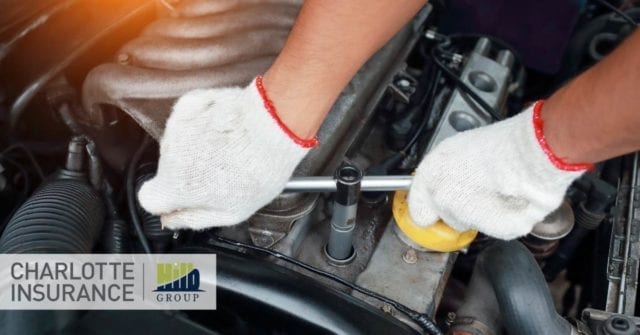If there’s one good thing to come out of sheltering in place or working from home, it’s how little you need to drive your car or fill up the gas tank. But just because you drive less often these days doesn’t mean your vehicle doesn’t need to be maintained.
Not taking care of a few basic maintenance issues could result in a big repair bill or permanent damage later. Here’s what you need to do.
Drive Your Car at Least Once a Week
You don’t need to have a particular place in mind, if you’re trying not to go to stores or be around crowds. Driving around the block a few times counts. A little driving will do wonders for your vehicle.
- Keep the battery charged. Batteries discharge when they sit for too long which means they’ll die if your car sits long enough. Turning on your vehicle will help some, but driving is best.
- Keep moving parts lubricated. Driving prevents the engine and mechanicals from drying out, oil from settling, and fluids from separating.
- Prevent flat spots on your tires. Tires lose pressure over time and the weight of your vehicle can leave flat spots — which usually means you need new tires.
Park Your Car Carefully
When you drive nearly every day, you don’t give much thought to where you park, because you’ll move your vehicle soon enough. Now that your car sits in one place for a long time, you need to really pay attention to where you park your vehicle.
- Pavement is an ideal parking location, with gravel being a good second choice. Avoid grass or dirt for long-term parking because both allow moisture to accumulate in your undercarriage which can cause rust.
- Consider what you park under, too. Tree sap and bird poop can ruin your car’s paint. If you don’t have a choice about what you park under, a car cover will protect the paint.
- Don’t use your parking brake for an extended amount of time. Your brake pads and rotors can fuse together if your vehicle sits too long.
Get Gas
Top off your gas tank before you park your vehicle for the long-term. You might not need a full tank of gas any time soon, but it’s good for your car. When a vehicle sits for a long time, condensation can accumulate in the gas tank if it’s not full, allowing moisture into your gas. A full tank also stops gasoline fumes from building up to hazardous levels.
Keep a Normal Maintenance Schedule
It might be difficult to justify the expense to maintain a vehicle you’re not driving, but this will save you money in the long run. Get regular oil changes based on a time schedule, usually three months, but check with your mechanic. You also want to check your brakes, fluids, tires, hoses, and more regularly. You’ll find problems when they’re small and inexpensive and make sure your car is ready to get on the road when you have to go back to work.
Even though you’re not driving your car as much, make sure you don’t neglect your auto insurance, either. Insurers are offering credits and rebates, and you may be able to get payment assistance if you’ve been laid off. Whatever you do, don’t cancel your auto insurance just because you’re not driving your vehicle. If you need help with your auto insurance or finding a more affordable option, contact Charlotte Insurance, today. We’re here to help!

